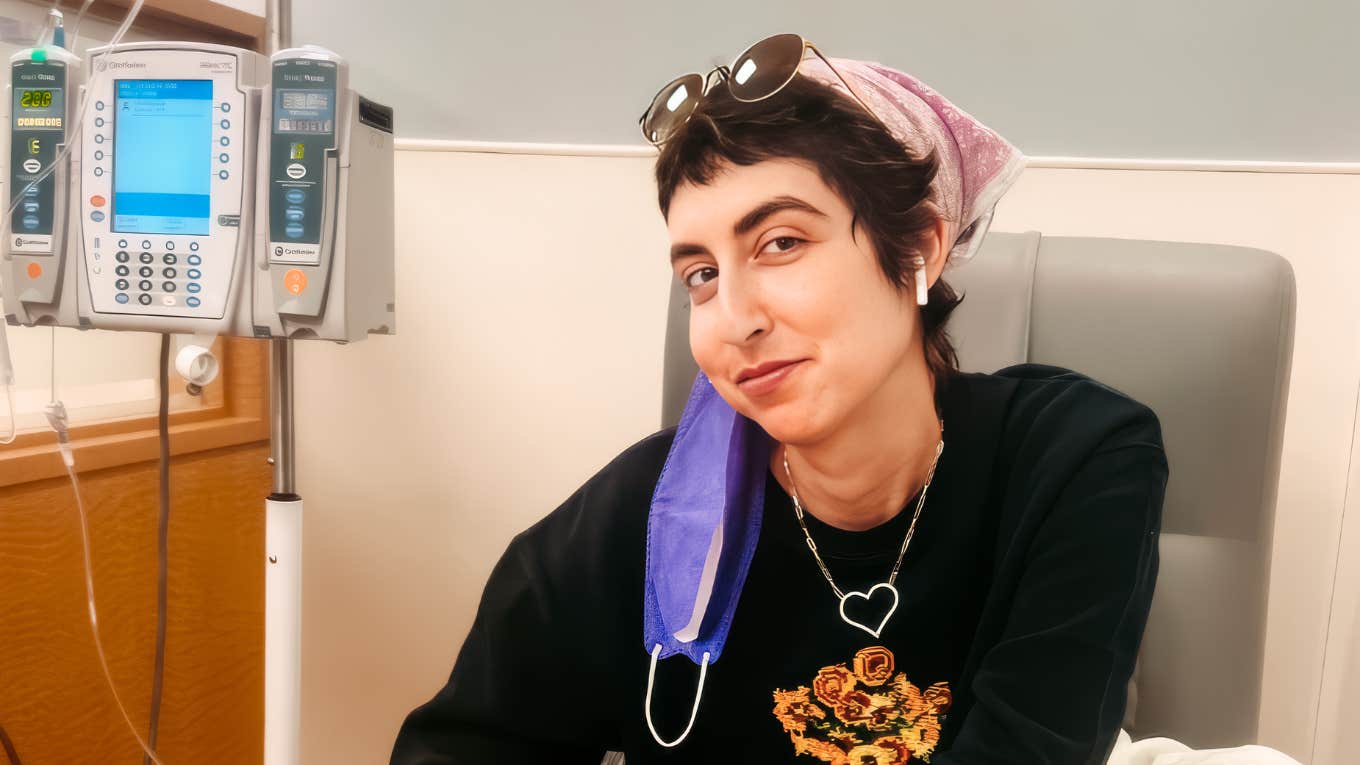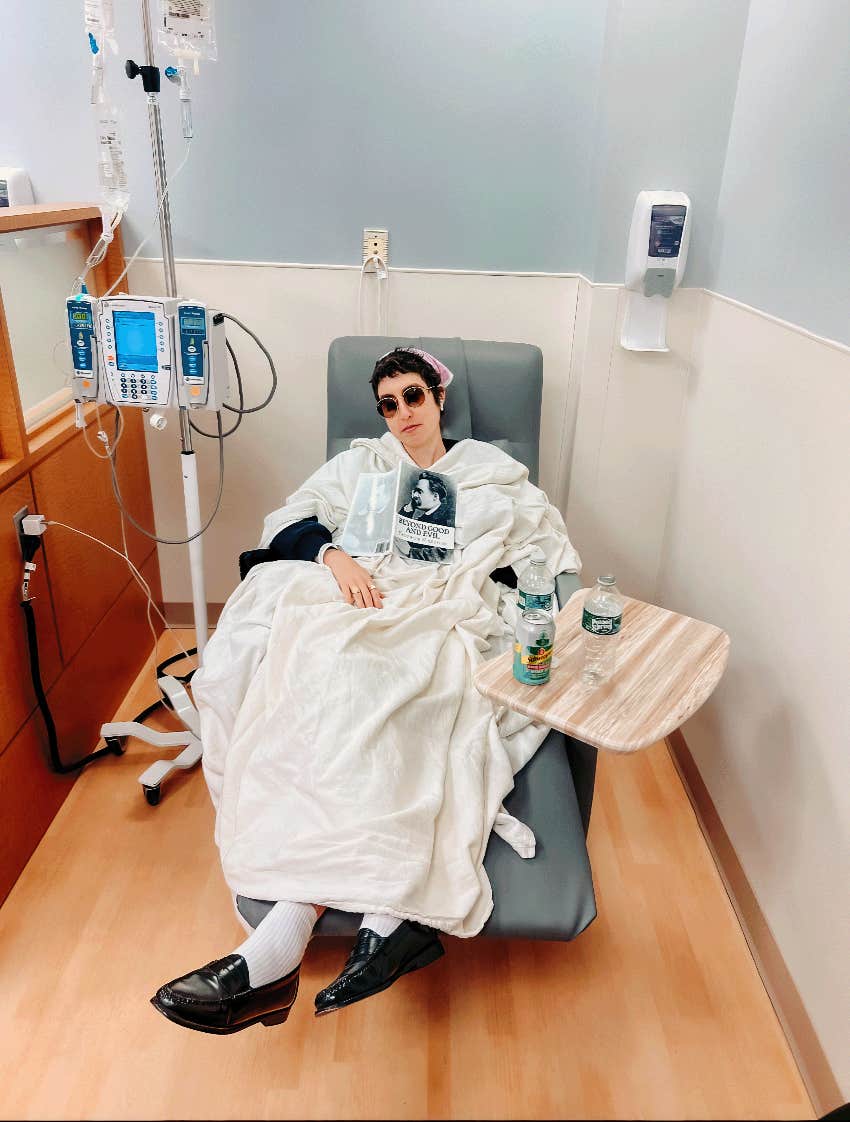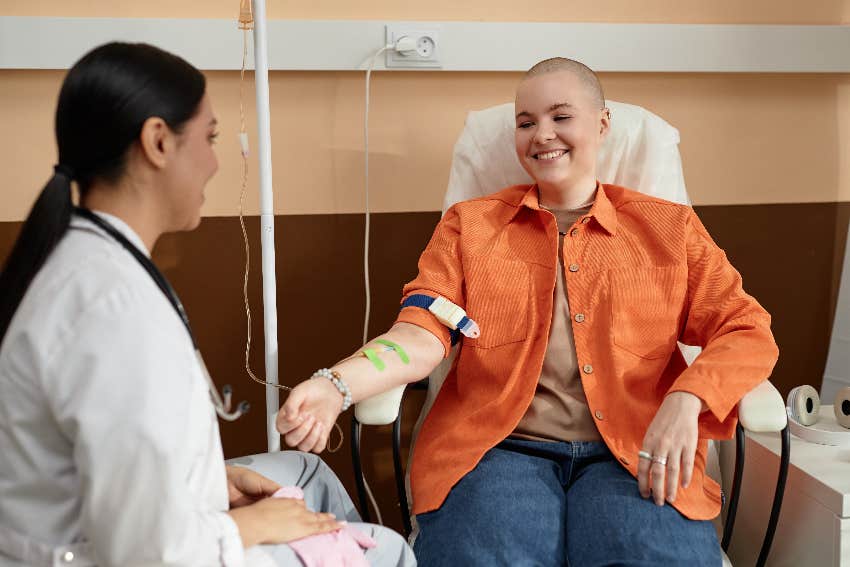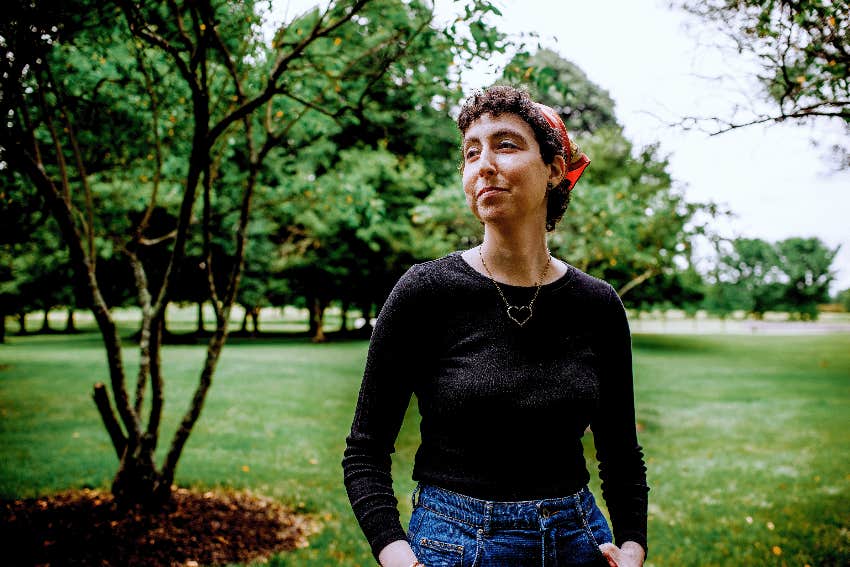Nothing Could Have Prepared Me For The Devastating Diagnosis I Received As A 38-Year-Old Single Mom
How I went from a vibrant 38-year-old living her best life to being diagnosed with non-Hodgkin’s DLBCL.
 Courtesy Of Author
Courtesy Of Author Nothing could have prepared me for what was about to happen. I was living my best life. I had a full-time job as an interior decorator at a large Interior Design firm in Bushwick.
I was dating, like singles in Brooklyn do, fast and fun, always on the lookout for the right one. I was healthy as a horse, as I like to look back now and say. As a single mother of three children, I was doing well, managing on my own.
Then, on March 7, 2022, my whole world tilted.
I found myself in the emergency room, looking down the barrel of a cancer diagnosis, barely breathing, barely alive.
 Photo courtesy of author
Photo courtesy of author
How did I go from a vibrant 38-year-old to the woman who found herself fighting for air on a stretcher in an emergency room? No one, not even the doctor on call that day, the one who took over my care and saved my life, would believe me that only a month before, I was still a healthy adult.
I have text messages from February 7, 2022, the day I ended a casual relationship, full of typical adult relationship drama. I refer to these messages every now and then, to remind myself how suddenly this disease arrives, how devastating it is, and how it robbed me of years and experiences.
That day in the emergency room I was diagnosed with a form of non-Hodgkin’s lymphoma called DLBCL, Diffuse Large B Cell Lymphoma.
More than 18,000 people are diagnosed each year with DLBCL. Most of those diagnosed are over the age of 60. I was young, and between February and March, none of the doctors I went to for care considered testing for cancer.
I was misdiagnosed repeatedly. As my condition deteriorated, I tested positive for strep and was put on antibiotics. The lymph nodes on my neck were bulging prominently but were attributed to the strep diagnosis.
After a week of no relief, my lymph nodes grew larger, and this time, I was told, it might be symptoms of mononucleosis. I went to a local emergency room, where they sent me home with more painkillers and no clear diagnosis. Throughout this time, my lymph nodes grew even larger and started creeping up the back of my neck.
I looked terrible, yet the doctors I encountered only prescribed me more antibiotics and painkillers. I took matters into my own hands. I had started to do my own research online and thought that this could be blood cancer.
I reached out to a friend whose daughter had leukemia, she connected me to a community organization that referred me to my hematologist. He was the one who met me in the emergency room, gently gave me my diagnosis, and saved my life that day. His knowledge and excellent care continue to keep me alive.
As a single mother of three kids, I was terrified. The diagnosis hit me like an oncoming truck — nothing could have prepared me.
I had many anxieties, but cancer was never one of them. Living independently and being able to provide for my children was always my biggest priority, now, with this diagnosis, all of this was in jeopardy.
I battled this cancer for over two years. Chemotherapy is the first course of action and 60-70% of people are cured from chemotherapy alone. I was unfortunately one of the 10-15% of people who are refractory to first-line chemotherapy.
 SeventyFour / Shutterstock
SeventyFour / Shutterstock
I was then able to be treated with Car T Cell Therapy as a second-line treatment, being that it was FDA-approved in April of 2022. This put me in remission for three months and then the cancer reared back, and I was fighting for my life again.
I have since been on a Bi Specific Antibody only two months before my last relapse from Car T. The Bi Specific Antibody has kept me in my current and longest remission. I am starting to hope, starting to plan for the future.
During those two years, the illness had free reign in my body. It was not something I could control, but the way I coped was by maintaining an illusion of control.
I didn’t want to confront the fact that I was sick and that my new reality was limiting. I banished dark thoughts by keeping busy. Throughout all my treatments, I continued to be a caregiver to my children.
I continued to work during chemotherapy, traveling to Bushwick, and working from home when needed. When I realized I was refractory to treatment, I opened my own interior design firm, so that I could have a flexible schedule that worked around my care.
I even completed a Master of Fine Arts degree in poetry, which I had started before my diagnosis. I would not let anything stop me. Sometimes, the only time I found respite was at clinic visits and hospital stays. I would then finally be able to relax and focus only on myself.
Through this experience, I learned about the importance of research.
With each relapse, there were new FDA-approved treatments available. New treatment options were on the table, options that would not have been available even months before.
Research has also allowed me to be an informed patient. I would read everything I could find about my disease from peer-reviewed medical journals. I became my own expert and would have informed questions at my clinic visits that allowed me to be an active participant in my own care.
One of the ways my hematologist would keep my hopes of a cure alive was always jokily telling me, “When you’re in med school you will know this or that...”. At the time, his words resonated only as an afterthought.
After finding my last and longest remission with a Bi Specific Antibody, I finally felt hope for a future. I was not the same person I was at 38, living my fun and fast Brooklyn life, content with designing people’s homes. I wanted to do something that filled the rest of my life with purpose.
 Photo courtesy of author
Photo courtesy of author
I have since gone back to college to pursue pre-med classes for a career in medicine. I am still young and full of life.
I will continue to pursue my dreams and allow this unique and challenging experience to empower me and hopefully use this to help others.
My advice to those who have gone through a blood cancer diagnosis would be to choose the right hematologist. Someone who is kind and accessible.
This disease doesn’t wait. Find an institution and clinical team that is at the forefront of new research. Research has saved my life more than once and continues to keep me alive.
Be informed and be your best advocate. Find and accept support from those around you. I know I didn’t allow myself much caretaking, but there were many kind people in my community who stepped in with lunches, food, and childcare.
Accept that. Stay strong, and focus on better days. Your future awaits you.
Esther Hoffman is an interior decorator from Brooklyn, New York. She was diagnosed with diffuse large B-cell lymphoma in 2022 and is currently pursuing a medical education to help others impacted by cancer.

